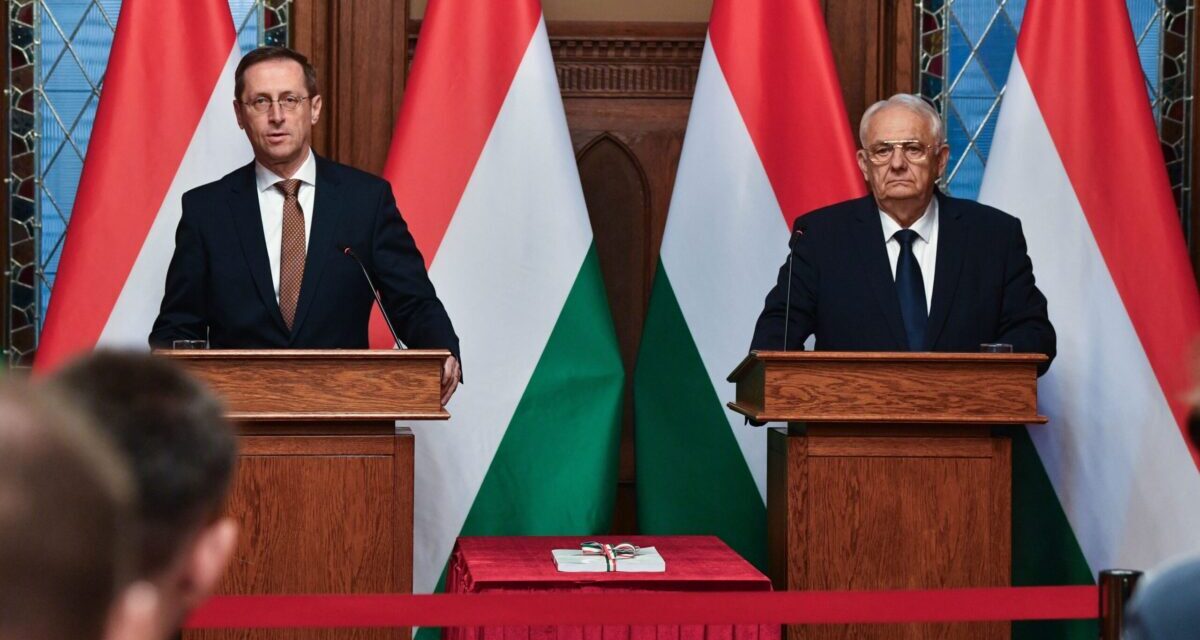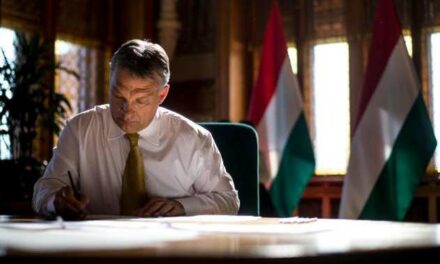An important goal is to support families, strengthen businesses, protect utility cuts, preserve the value of pensions, and guarantee the country's physical security.
The 2025 budget can be a budget for new opportunities, a new economic policy and peace, said Finance Minister Mihály Varga at the ceremonial presentation of the 2025 budget bill in Parliament on Monday.
He added that the post-pandemic period, the war conflict, and the uncertain international environment required amendments to the budget submission compared to previous years, which is why it was submitted later.
Despite this, the prospects are encouraging, there is a good chance that the world will move in the direction of peace based on the results of the American elections, he added.
He highlighted: economic growth started this year, and the performance of the Hungarian economy will increase in 2024; along with the increase in wages, the upswing in consumption can be felt. Based on the forecasts of international institutions, the Hungarian economy is expected to perform at the forefront of the EU in 2025, said Mihály Varga.
He emphasized that the government sets clear goals: restoring the economy to the growth path, increasing wages, and ensuring that more money stays with families and that SMEs become stronger.
Mihály Varga highlighted five elements of the plan: supporting families, strengthening businesses, protecting utility reduction, preserving the value of pensions, and guaranteeing the country's physical security are important goals.
This year's budget was a defense budget, the 2025 budget can be a budget for new opportunities, a budget for a new economic policy, a budget for peace, the minister said.
With disciplined public finance management, deficit reduction will continue, with a deficit target of 3.7 percent. The budget is based on GDP growth of 3.4 percent and inflation is projected at 3.2 percent.
In 2025, gross interest expenses will be 3.8 percent of GDP. The Budget Council expressed its agreement with next year's budget, and all conditions were met for compliance with the Basic Law, he listed.
According to his description, most areas were expected to increase in real terms.
National defense expenditures reach 2 percent of GDP, according to the NATO commitment, so HUF 1,753 billion are expected to be spent. In 2010, HUF 225 billion were available, which means that they increased by 3.5 times in real terms. Border protection costs have reached HUF 800 billion since 2015, and next year this will increase by another HUF 40 billion. The amount of law enforcement expenses will rise to HUF 1,396 billion next year.
The minister emphasized that HUF 3,574 billion will be allocated to support families, HUF 447 billion more than this year, maintaining Europe's broadest family protection support. The flexibility of families will also be helped with utility protection measures, which will amount to HUF 880 billion, and the previous utility protection fund will be abolished.
One of the largest items is pensions, retirement benefits will increase to HUF 7,200 billion, and the payment of the thirteenth monthly pension is also guaranteed.
The education area can count on a budget increased to HUF 3,876 billion, with an increase of almost HUF 500 billion, the health budget will be HUF 3,717 billion.
Regarding the special taxes, he said that their elimination will continue, taxes imposed on airlines, pharmaceutical manufacturers, and telecommunications will cease from January. Advertising tax will also be suspended for another year.
The amount of the reserves will be HUF 100 billion, since the ministries also have chapter reserves, the increased limits will be sufficient for 2025.
Compared to 2010, the Hungarian budget has undergone significant development, the resources are several times more available in real terms, the Minister of Finance concluded.
The left-wing government that was in power before us increased the national debt from 55 to 82 percent, and increased the average budget deficit to over 6 percent, all in peacetime, said Mihály Varga.
He added that, on the other hand, the national government increased the resources of the budget in such a way that at the same time it significantly reduced the national debt, and despite the war and the epidemic, it keeps the budget deficit well below the average of left-wing governments.
János Latorcai, the vice-president of the Parliament, explained: the proposal will be discussed by the parliament in a 30-hour time frame on November 27-28 and 29, the deadline for the submission of amending proposals is 4 p.m. on the 28th. After the committee debates, the final vote on the 2025 budget will be held on December 20, which is expected to be the last day of this year's meeting, he said.
After the US president takes office, there are plans to conclude an agreement, part of which will be the reintroduction of the convention on the avoidance of double taxation, said Mihály Varga in response to a journalist's question. He also announced that there are also plans to invigorate the American economic relations of Hungarian businesses.
The government does not have an exchange rate target, when planning the 2025 budget, they calculated on an exchange rate of HUF 397.5, a so-called "technical number". It is not a problem if the exchange rate develops differently, he said.
MTI
Cover photo: Minister of Finance Mihály Varga gives a speech at the presentation of the draft 2025 budget in Parliament on November 11, 2024. Next to him is János Latorcai, KDNP vice-president of the National Assembly.
Source: MTI/Noémi Bruzák













